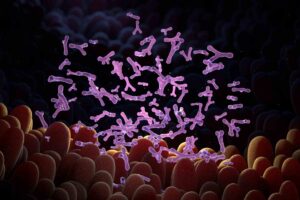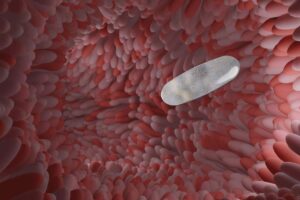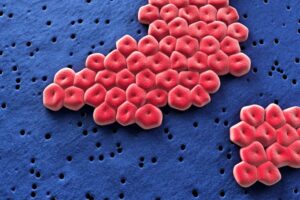Scientific research
Scientific research
Nutrient competition provides a predictive framework to anticipate and potentially mitigate drug side effects on the gut microbiota.
Scientific research
Douwe Van Sinderen, professor of Molecular Microbiology at School of Microbiology & APC Microbiome Ireland, focuses on bacteriophages infecting lactic acid bacteria used in food and probiotic applications.
Scientific research
Ethical, long-term partnerships can uncover valuable scientific insights while respecting Indigenous knowledge.
Scientific research, Geriatrics
The abundance of Bifidobacterium may explain M116’s excellent cholesterol profile and low inflammation levels.
Scientific research
The authors propose a coordinated framework involving policymakers, scientists, educators, and communities to embed microbiota science into One Health strategies.
Scientific research
Restoring beneficial bacteria could lead to new treatments for chronic pain in people with sickle cell disease.
Scientific research
The findings of a news study reveal how Bifidobacterium evolve and adapt to different hosts, paving the way for targeted therapies such as customized probiotics and diet-based interventions.
Gastroenterology, Scientific research
CORAL can sample the microbes residing in upper gut in a non-invasive and reliable way, offering a tool for studying the diversity of the microbiota.
Scientific research
Profiling the human gut microbiota at the subspecies level, rather than at the species- or strain-level, provides more reproducible insights into how specific bacteria influence health and disease.
Scientific research
The findings of a recent study reveal a key strategy used by A. baumannii to colonize the gut and persist in it, highlighting a potential target for preventing its spread…











